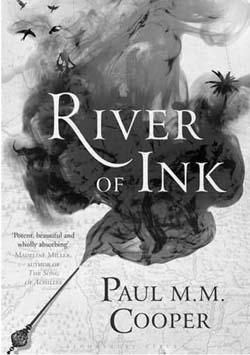Paul Cooper is audacious in not only situating his debut novel in as unlikely a setting as medieval Sri Lanka but in constructing it around an ancient Sanskrit poem. His daring choice of context, however, adds to the lustre of the book. River of Ink is a work of abundant creative ability: an adroitly-crafted love story, a morality tale about poetry’s triumph over oppression.
Shishupala Vadha (The Slaying of Shishupala), a 7th century Sanskrit epic based on an eponymous episode in the Mahabharata, is regarded as one of the most complex and beautifully written poetic works ever. The only known work of the poet Magha, it is said to combine the similes of Kalidasa, Bharavi’s depth of meaning and Dandin’s wordplay. A masterpiece of metrical manipulation and linguistic ingenuity, Vadha includes trick stanzas created in palindromic form—reading the same in mirror image and even downwards and upwards— verses written with the use of only one or two consonants and others replete with hidden meanings and double entendres. With ostentatious embellishment, Magha immortalizes the story of the evil Shishupala, who was regarded as Ravana re-born, and whose subjugation required Krishna to humbly swallow a hundred insults before unleashing his destructive might.

